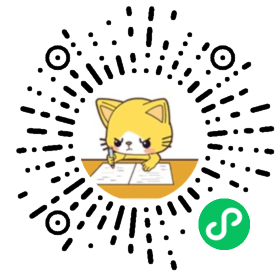【单选题】
下列哪一种气上走息道面下注气街___
A. 元气
B. 宗气
C. 营气
D. 卫气
E. 肺气
查看试卷,进入试卷练习

微信扫一扫,开始刷题

答案
B
解析
暂无解析
相关试题
【单选题】
Q1: What does the man suggest that the woman do this weekend?___
A. Read J .K .Rowling's first book .
B. Go to buy a new Harry Potter book .
C. Watch BBC news about J .K .Rowling .
D. Take her cousin to see a new Harry Potter movie .
【单选题】
Q2: Where did J. K. Rowling come up with the idea for Harry Potter?___
A. At a cafe .
B. On a train .
C. At a cinema .
D. In a bookstore .
【单选题】
Q3: What are J. K. Rowling’s future plans?___
A. She won't write any more books .
B. She will write more magic stories .
C. She hasn't said anything about her future plans .
D. She said she would work on more serious subjects .
【单选题】
Q4: What are the two speakers mainly talking about?___
A. J.K. Rowling's secret .
B. J .K .Rowling's writing plan .
C. A new book by J .K.Rowling.
D. An interview with J .K .Rowling .
【单选题】
Q1: What happened when Stephen tried to remove a bottle of milk from the refrigerator?___
A. He broke the milk bottle .
B. He fell down on the floor .
C. He made a mess inside the refrigerator .
D. He spilled the milk over the kitchen floor .
【单选题】
Q2: What did Stephen’s mother do when she came into the kitchen?___
A. She gave him a long lecture .
B. She shouted at him in anger .
C. She enjoyed the wonderful mess .
D. She cleaned up the mess with him .
【单选题】
Q3: What did Stephen’s mother teach him later?___
A. How to do an experiment .
B. How to carry a milk bottle .
C. How to clean up spilled milk .
D. How to avoid making mistakes .
【单选题】
Q4: What did Stephen learn from this experience?___
A. Mistakes can become learning opportunities .
B. Mistakes are just like scientific experiments .
C. One should sometimes make mistakes .
D. One should try to avoid making mistakes .
【单选题】
Q1: Why is surfing the man’s favorite activity?___
A. Because he likes the sunny weather.
B. Because he wants to challenge himself .
C. Because it can help solve his sleeping problem .
D. Because it can help him forget all his troubles .
【单选题】
Q2: What is the woman going to do this weekend?___
A. To go sailing .
B. To go surfing .
C. To go to the beach .
D. To go to her nephew's .
【单选题】
Q3: What does the woman love doing?___
A. Going to visit relatives.
B. Enjoying the warm sun on the beach .
C. Building sand castles with her niece and nephew .
D. Playing in the sand and jumping in the waves .
【单选题】
Q4: What does the man remember doing with his brothers?___
A. Surfing in the sea .
B. Collecting seashells .
C. Building sand castles .
D. Jumping in the waves .
【单选题】
Q1: According to the survey, what percentage of British adults watched TV in theirfree time?___
A. 89 percent .
B. 84 percent .
C. 76 percent .
D. 71 percent .
【单选题】
Q2: Which age group would be the most likely to visit their friends and relatives?___
A. People aged 16 to 24
B. People aged 25 to 34 .
C. People aged 16 and over .
D. People aged 55 and over .
【单选题】
Q3: What does the speaker say about listening to music as a leisure activity for British people?___
A. People aged 16 to 24 preferred listening to music most .
B. It was getting more and more popular among the British people .
C. It was the third most popular activity among people aged 55 and over .
D. People aged 25 to 34 listened to music more often than those aged 16 to 24 .
【单选题】
Q4: According to the survey, how are leisure activities related to age?___
A. Older people go out to pubs more often . frequently .
B. Younger people go to the cinema less frequently.
C. Older people spend more time reading and gardening .
D. Younger people spend less time visiting friends and family .
【单选题】
Q1: Why was the girl excited?___
A. She is going to have a lot of vanilla ice cream .
B. She won the spelling competition at her school .
C. She is going to the state capital for a competition .
D. She "excellence"correctly,but others didn't .
【单选题】
Q2: What happened when the man was 13 years old?___
A. His family moved to Sacramento to settle down .
B. His family bought him a new suit and a new tie .
C. He went to Sacramento for a spelling competition .
D. He won the first prize in the state spelling competition .
推荐试题
【单选题】
实践的中介是 ___
A. 各种形式的工具、手段及其运用的程序和方法
B. 对一事物存在和发展有联系的各种要素的总和
C. 构成事物一切要素的总和
D. 受命于主观见之于客观的活动
【单选题】
列宁提出的:“从物到感觉和思想”与“从思想和感觉到物”是 ___
A. 唯物主义认识论与唯心主义认识论的对立
B. 经验论与唯理论的对立
C. 辩证法与形而上学的对立
D. 可知论与不可知论的对立
【单选题】
唯物主义认识论和唯心主义认识论的根本区别在于 ___
A. 是否承认认识是主体对客体的反映
B. 是否承认人有认识能力
C. 是否承认世界是可以被认识的
D. 是否承认认识世界是为了改造世界
【单选题】
“只有音乐才能激起人们的音乐感;对于没有音乐感的耳朵来说,最美的音乐也毫无意义”。这表明 ___
A. 人的认识是主体与客体相互作用的过程和结果
B. 人的感觉能力决定认识的产生和发展
C. 人的认识能力是由人的生理结构决定的
D. 事物因人的感觉而存在
【单选题】
未来科学家尼葛庞蒂说:“预测未来的最好办法就是把它创造出来。”从认识和实践的关系看,这句话对我们的启示是 ___
A. 认识总是滞后于实践
B. 实践和认识互为先导
C. 实践高于(理论的)认识,因为它不仅具有普遍性的品格,而且具有直接现实性的品格
D. 实践与认识是合一的
【单选题】
马克思指出:“搬运夫和哲学家之间的原始差别要比家犬和猎犬之间的差别小得多,它们之间的鸿沟是分工掘成的”这表明 ___
A. 人的聪明才智无先天区别
B. 人的聪明才智得大小主要取决于主观努力的程度
C. 人的聪明才智主要来源于后天实践
D. 人的聪明才智由其社会政治地位决定
【单选题】
实践是认识的基础表明 ___
A. 每个人必须事事经过实践才能有认识
B. 只要坚持实践就一定能获得正确认识
C. 直接知识来自于实践,间接知识不来于自实践
D. 一切认识归根到底来自于实践
【单选题】
“知屋漏者在宇下,知政失者在朝野”,这一古训蕴含的哲理是 ___
A. 人的经验是判断是非得失的根本尺度
B. 直接经验比间接经验更重要
C. 感性认识高于理性认识
D. 实践是认识的重要基础
【单选题】
“社会上一旦有技术上的需要,则这种需要会比十所大学更能把科学推向前进。”这说明 ___
A. 实践是认识的来源
B. 技术推动了科学的发展
C. 实践是认识发展的动力
D. 科学进步是实践的目的
【单选题】
518、“纸上得来终觉浅,决知此事要躬行”, 陆游这一名句强调的是 ___
A. 实践是认识的来源
B. 实践是推动认识发展的动力
C. 实践是认识的目的
D. 间接经验毫无用处
【单选题】
“人的思维是否具有真理性,这并不是一个理论的问题,而是一个实践的问题。人应该在实践中证明自己思维的真理性,即自己思维的现实性和力量,亦即自己思维的此岸性。”这一论断说明了 ___
A. 实践是认识的来源和动力
B. 实践是检验认识是否具有真理性的唯一标准
C. 实践检验真理不需要理论指导
D. 认识活动与实践活动具有同样的作用和力量
【单选题】
毛泽东说:“马克思主义哲学认为十分重要的问题,不在于懂得了客观世界的规律性,因而能够解释世界,而在于拿了这种对于客观规律性的认识去能动地改造世界。”这段话强调的是 ___
A. 认识的任务在于透过事物的现象抓住事物的本质
B. 认识的任务不仅在于解释世界,更重要的是改造世界
C. 认识的任务在于运用客观规律解释世界
D. 只要了解了客观规律就能成功地改造世界
【单选题】
人的认识是主体对客体的直观的反映,这是一种 ___
A. 辩证唯物主义认识论的观点
B. 机械唯物主义认识论的观点
C. 主观唯心主义认识论的观点
D. 客观唯心主义认识论的观点

